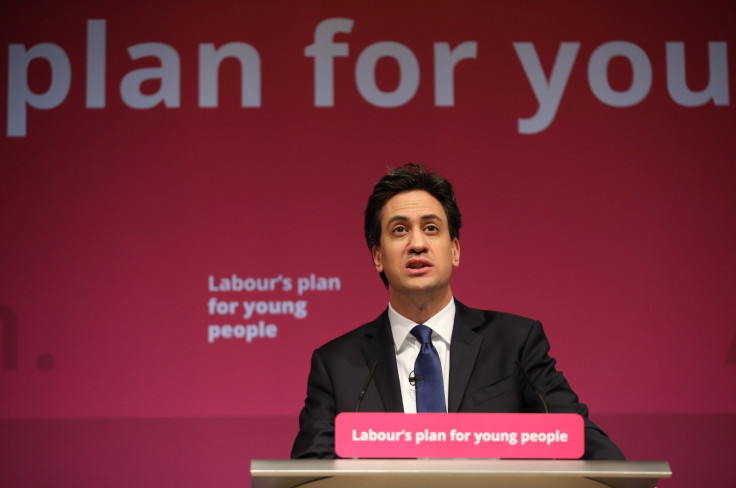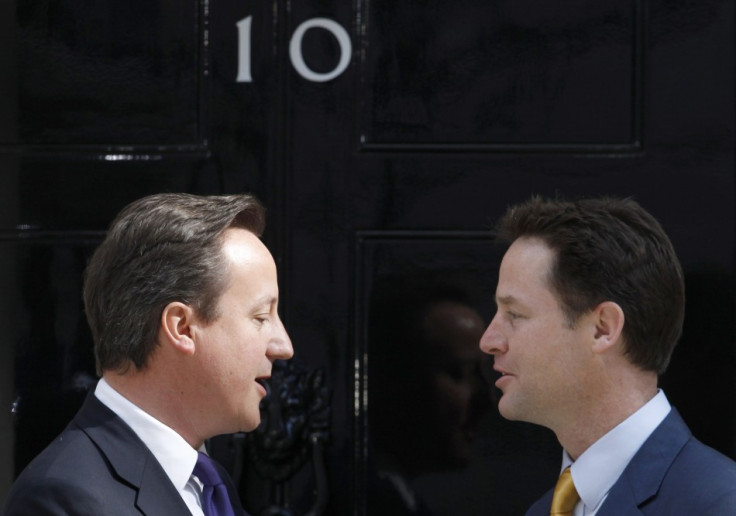Margareta Pagano: Ed Miliband has failed to tell taxpayers they must fund UK zero-carbon dream
Here's a thought that will send shivers down your spine. Making the UK zero-carbon by 2030 would cost at least half a trillion dollars and would see the biggest transfer of money from the poor to the rich to have ever taken place in the history of Britain. Yes, read that again slowly: from the poor to the rich.
Lambert Energy, one of the UK's top energy advisory firms, estimates building a zero-carbon power sector by 2030 would reach those figures based on current industry unit costs; the minimum cost would be a cool $500bn.

Yet turning the UK into a zero-carbon economy is the Labour Party's stated intention. Ed Miliband has said publicly on at least two occasions that if in government, Labour's ambition is to make the UK zero-carbon by 2030.
What Miliband hasn't ever said is how much this ambition would cost the country, or where the money would come from.
Here's where: it's you and me, the taxpayer, through subsidies from the government to the renewable industry. This is because neither private companies nor big corporations would be able to afford to build enough power plants – whether it be wind, solar or biomass – without still being subsidised.
As we've seen already with off and on-shore wind, solar and biomass, the cost of private capital is far too expensive for even the biggest companies to raise on current returns.
So how do Lambert's analysts get to the half a trillion dollar figure? Well, it's down to replacing hydrocarbons with renewables based on UK electricity output for 2013 to 2014, a figure that hasn't changed much. Roughly, about 31% of power was coal-fired, another 29% came from imported and domestic gas, some 20% from the nuclear fleet (which is running out fast) and the last 20% from renewables. Of the renewable mix, about 4% was from off-shore wind, another 6% from biomass, 2% from hydro and the balance from solar and on-shore wind.
Nuclear energy would play a key role
If the UK were to be zero-carbon in 15 years, that means the 60% provided by gas and coal would have to be replaced by new "greener" power sources. Most of that would have to come from nuclear energy, the only source that can provide the quantity and, as Hinckley Point shows, each plant costs at least $25bn. To get to that amount of power, that's about $350bn. On top of these figures for nuclear, it would cost at least another $150bn or so to build enough off-shore wind, solar and biomass to reach the balance.
And why would the shift to green be such an enormous transfer of money from the poor to the rich? Simple, because renewable subsidies are mainly paid for via customer energy bills – borne equally by the 26 million households; in 2015, it's about £250 per household but set to rise to £600 a year and would certainly be more under any Miliband plan to go zero-carbon. This hits the poorest and those close to fuel poverty the hardest although those in the squeezed middle who will be hit by both higher energy bills and higher tax.
What would make them hurt even more is knowing that those subsidies are going to the richest, for example farmers who own land on Welsh hilltops and will rake in millions from selling it to subsidised private wind companies.
Coalition government is to blame as much as Labour
But Labour is not the only political party that looks at going green with such spectacularly disingenuous rosy-coloured spectacles without having done any proper cost benefit analysis of how to get to a zero-carbon economy without massive tax increases or wealth transfers.
Indeed, the coalition government is just as much to blame for having messed up the energy market, so what we have in the UK is the worst of all worlds; a mish-mash of private and state-control, and a market riddled with price distortions, deeply unfair competition and high energy bills.

Or, in the damning words of a former Treasury special adviser on climate change and well-known author, Rupert Darwall, an energy policy that represents the biggest expansion of state power since the nationalisations of the 1940s and 1950s and is on "course to be the most expensive domestic policy disaster in modern British history".
He's not one to waste words. Indeed, Darwall's arguments are vividly clear in a new report, Central Planning with Market Features: how renewable subsidies destroyed the UK electricity market, published by the Centre for Policy Studies.
He shows how the electricity sector is being transformed into a vast, ramshackle Public Private Partnership – one of state control of investment funded by high-cost private sector capital with energy companies being set up as the fall guys taking the rap for higher electricity prices.
Darwall goes further to demonstrate how labour productivity in electricity has plunged since privatisation, that competition between electricity suppliers is an expensive side-show( and does nothing to promote innovation), that subsidised wind and solar wrecks the economics of conventional power stations and distorts what should be a private sector - which means that private investors are having to price and manage political risk, thus putting upward pressure even more on bills.
Renewables v the market
So what does Darwall recommend? He says there is only one conclusion to the conundrum: you can have renewables – or you can have the market. But you cannot have both.
If you go for renewables – and they may indeed be a good thing although the jury is out – then you have to renationalise the energy industry because putting the industry back in the state's hands means you cut the political risk – and the cost of capital, and therefore energy bills. Or governments of whatever colour should get clean out of the way – drop all renewable target and allow the markets to work and energy bills to fall.
He's right: it has to be one or the other but sadly this debate is always muddied by the militant religious fervour of the zero-carbon lobby on one side and the militant deniers on the other.
What is crystal clear from Darwall's analysis – and Lambert's costings of a carbon-free economy – is that there is a desperate need for an urgent audit into the industry and a proper value for money analysis – and maybe better evidence that renewables are the most efficient way of reducing carbon emissions.
More pertinently, we need an honest debate about the enormous and regressive wealth distribution from the poor to the rich that is taking place right under our noses. With 50 days to go until the general election, it's bizarre none of the political parties have even touched on our future energy supplies in their attempts to woo us. They don't dare; too much hot air.
Margareta Pagano is a business journalist who writes for the Independent and the Financial News. Follow her on Twitter @maggiepagano.
© Copyright IBTimes 2025. All rights reserved.






















